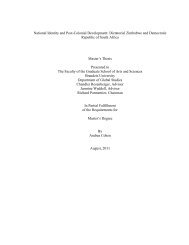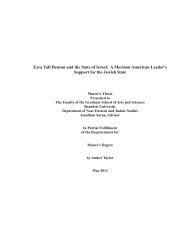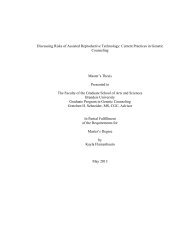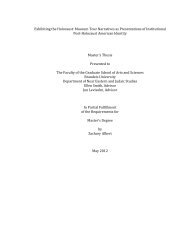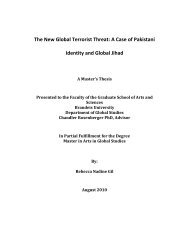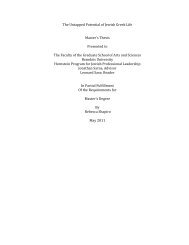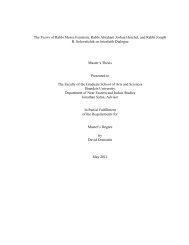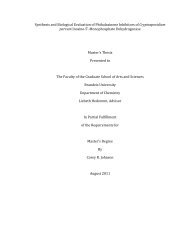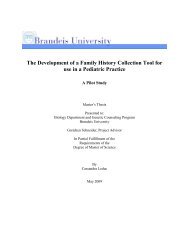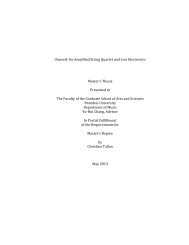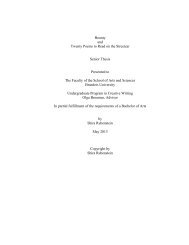A Familiar Frontier: The Kennedy Administration in the Congo ...
A Familiar Frontier: The Kennedy Administration in the Congo ...
A Familiar Frontier: The Kennedy Administration in the Congo ...
You also want an ePaper? Increase the reach of your titles
YUMPU automatically turns print PDFs into web optimized ePapers that Google loves.
Once aga<strong>in</strong>, however, State Department officials needed <strong>the</strong> presence of all majorfactions for <strong>the</strong> decisions made to be viewed as legitimate. G. Mennen Williams andChester Bowles were among those at State who felt that <strong>the</strong> best way to respond to <strong>the</strong>perceived communist threat <strong>in</strong> <strong>the</strong> <strong>Congo</strong> was to <strong>in</strong>corporate a few representatives of thatelement and encourage <strong>the</strong>m to participate with<strong>in</strong> <strong>the</strong> system. This was a clear departurefrom Eisenhower-era th<strong>in</strong>k<strong>in</strong>g, and <strong>Kennedy</strong>’s improved relations with leftist leaders <strong>in</strong>Ghana and Gu<strong>in</strong>ea were <strong>the</strong> clearest example of this method. However, like many of <strong>the</strong>changes <strong>in</strong> <strong>the</strong> <strong>Kennedy</strong> <strong>Adm<strong>in</strong>istration</strong>, <strong>the</strong> reality did not live up to <strong>the</strong> highexpectations that <strong>Kennedy</strong> had created with his rhetoric. Indeed, <strong>the</strong> extent to which thisrepresented a genu<strong>in</strong>e change <strong>in</strong> perspective is called <strong>in</strong>to question by <strong>the</strong> StateDepartment recommendation that Gizenga be offered a “non-sensitive post <strong>in</strong> o<strong>the</strong>rwisemoderate cab<strong>in</strong>et with strong Prime M<strong>in</strong>ister.” 35 Ambassador Timberlake and officials <strong>in</strong><strong>the</strong> Defense Department openly questioned whe<strong>the</strong>r even this largely ceremonial positionwas not too much of a capitulation to radical forces. As recently as May 10, Bowles hadsaid of Gizenga, “we consider him completely responsive at present to foreign direction,”a sentiment certa<strong>in</strong>ly not shared by <strong>the</strong> Soviets, whose earlier denial of aid meant that<strong>the</strong>ir <strong>in</strong>fluence with <strong>the</strong> enigmatic leader was m<strong>in</strong>imal. 36Timberlake’s perspective was noted, but little more than that, as he would soon beremoved from his position as part of a deal with Hammarskjold to replace <strong>the</strong> deeplyunpopular Dayal. Despite his best efforts, Dayal had drawn scorn from virtually allparties, with Mobutu even threaten<strong>in</strong>g to assass<strong>in</strong>ate him and use his own forces aga<strong>in</strong>st<strong>the</strong> U.N. troops if Dayal returned to <strong>the</strong> <strong>Congo</strong>. <strong>The</strong> U.S. State Department had tried to35 Telegram from Bowles to Timberlake, FRUS, 1961-1963, 20:14336 Telegram from Bowles to U.S. Mission at U.N., FRUS, 1961-1963, 20:13655





